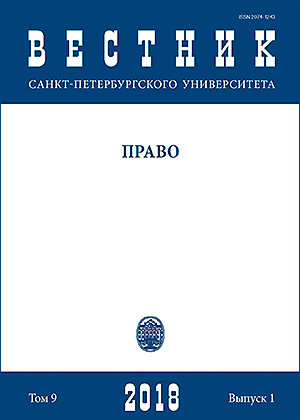The event of crime as object of criminalistic knowledge
DOI:
https://doi.org/10.21638/11701/spbu14.2018.106Abstract
Criminal activity in real life manifests itself in the form of an event of a specific crime. The crime event arises and functions in the form of a system. This system has a criminal nature, which is due to the wrongfulness of the act and the public danger of its consequences. The incipient of the system of the event of a crime is initiated by concrete actions or inaction of the subject. The development of this system is ensured by the interaction of a certain set of elements. Such elements are in the cause-effect relationship (interrelation, interdependence, subordination). These elements form the structure of the system of the crime scene. Depending on the type of crime, the criminal system includes the subject, object, place and time of encroachment, various objects, means, processes (system elements). All of them exist in fact and possess the qualities of objects of the material world. The specifics of the properties of systemic elements determines the peculiarities of the formation of a criminal act. Forensic cognition of the crime (a systemic multifactorial phenomenon of reality) should contribute to the creation of an effective forensic toolkit for the rapid detection of crimes, the optimal preliminary investigation and prevention of criminal acts.
Keywords:
criminal activity, the event of a crime, the systemic elements of the structure of the crime event, the patterns of the dynamics of the crime event
Downloads
References
Downloads
Published
How to Cite
Issue
Section
License
Articles of "Vestnik of Saint Petersburg University. Law" are open access distributed under the terms of the License Agreement with Saint Petersburg State University, which permits to the authors unrestricted distribution and self-archiving free of charge.






